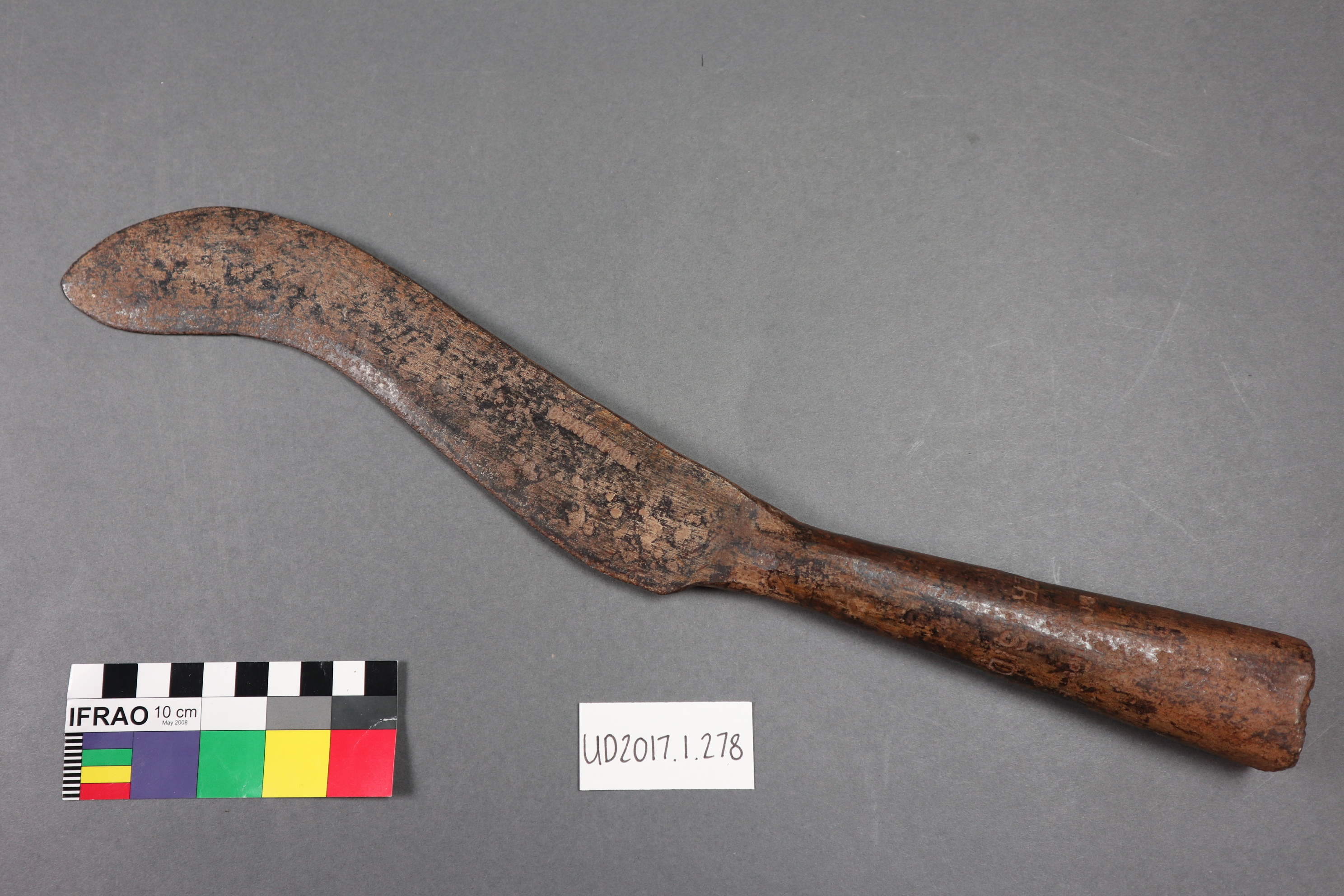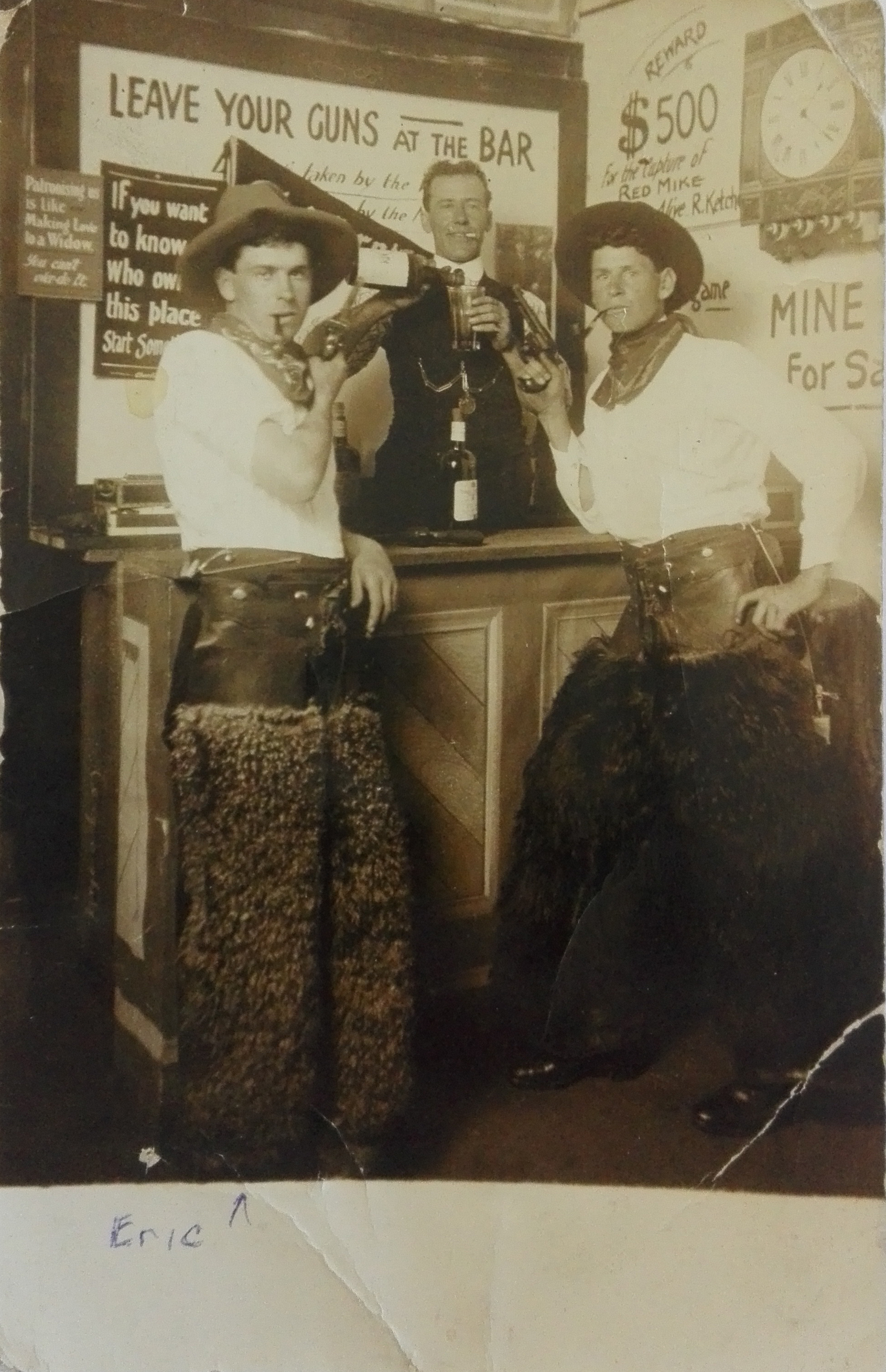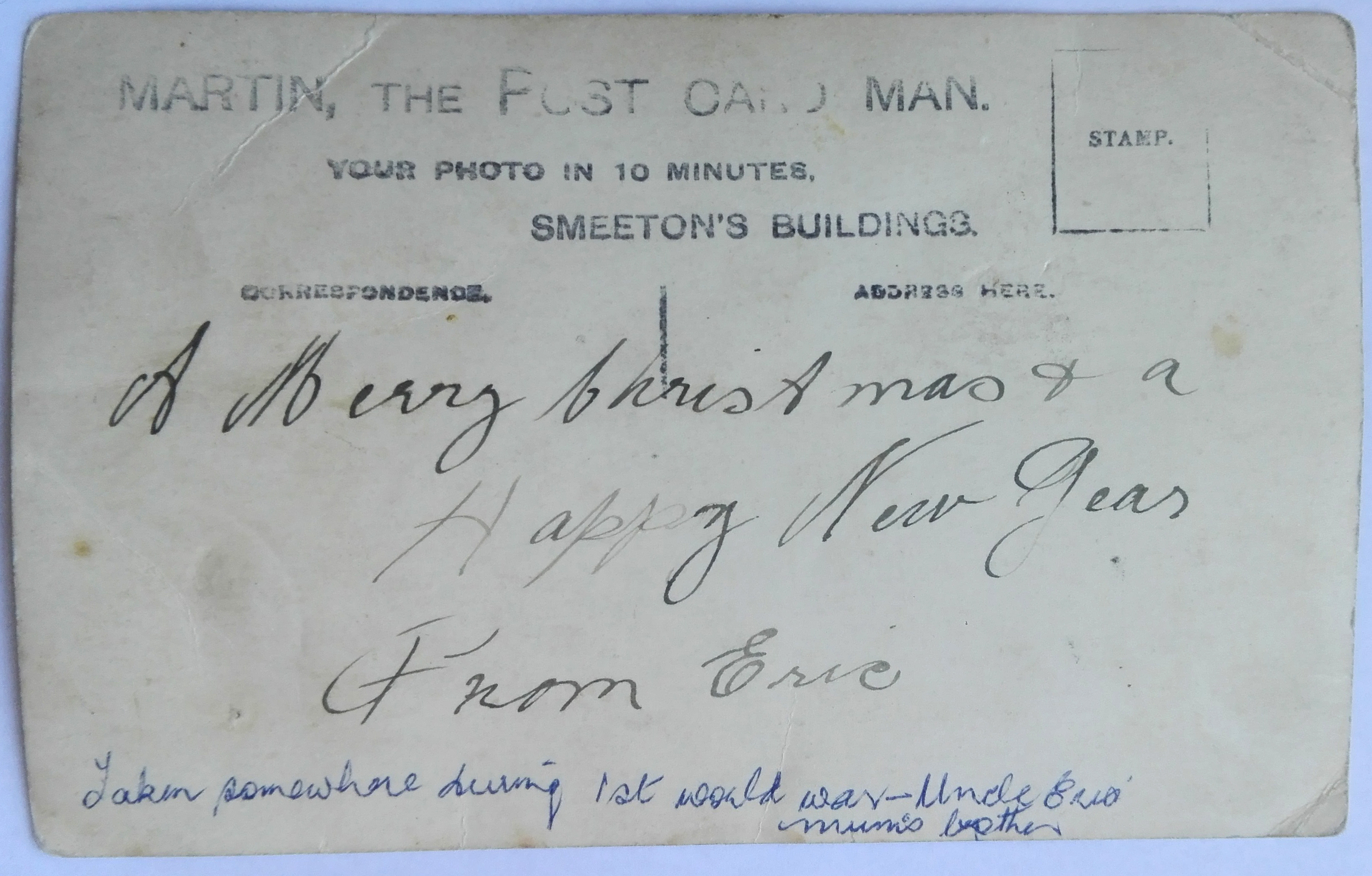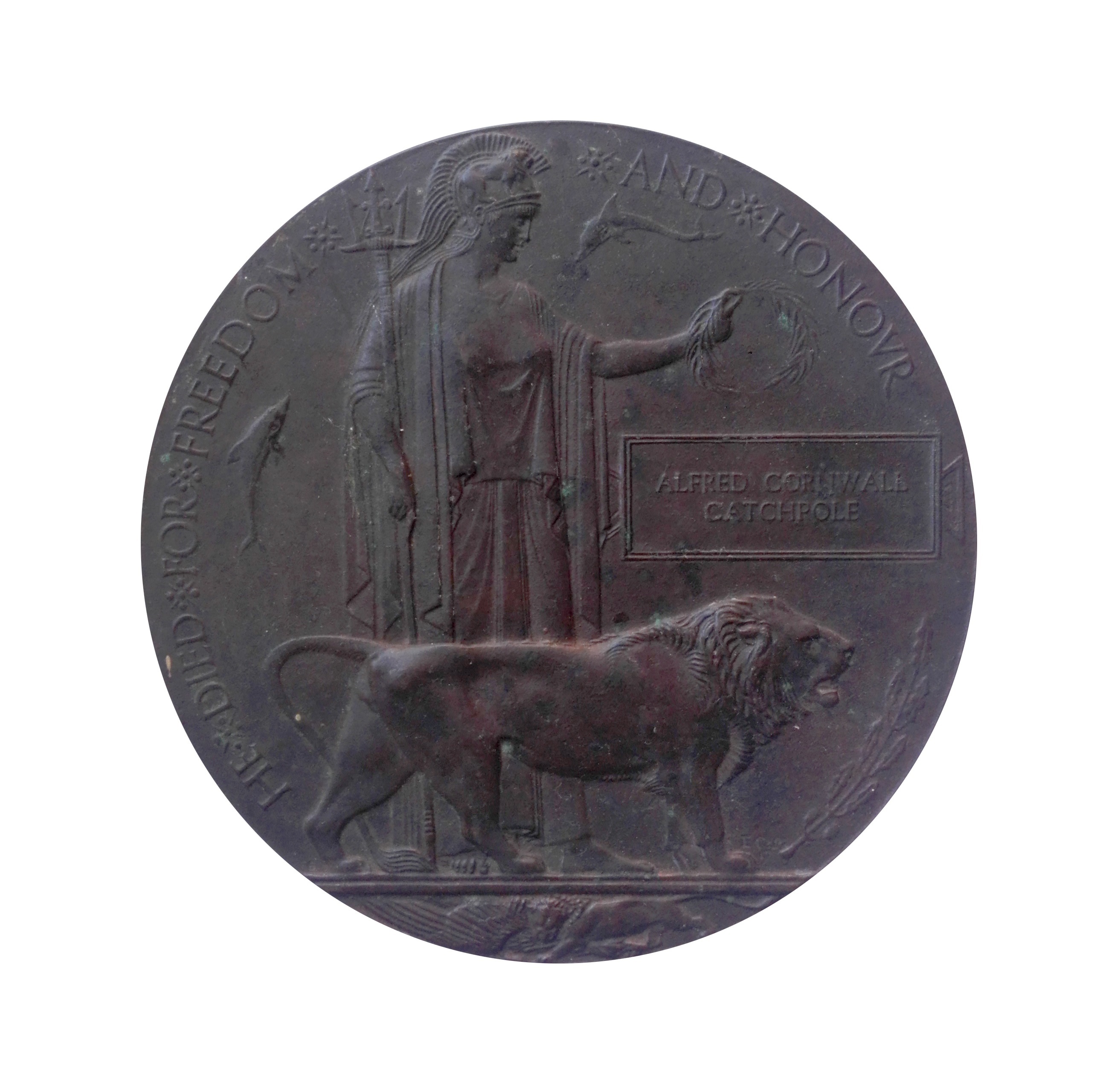Canterbury Museum's Inventory Team is currently going through the storerooms recording, photographing and updating the records for objects. It is a big task; the Museum holds an estimated 2.3 million objects.
The Inventory Team recently came across a metal tool inscribed ‘O Catchpole’ and ‘Fernside’. This item probably belonged to Oliver Dimmack Catchpole (1883–1956) whose parents arrived in New Zealand from Derbyshire, England, in 1879. The family eventually settled in Woodend.

Oliver had a brother, Alfred Benjamin Catchpole (1866–1951) who lost two sons in World War One.
Alfred married Caroline Margot Cornwell (1866–1945) of Christchurch at Woodend in August 1889. They had twins Alfred Cornwall and Leslie William in Christchurch before moving to Taranaki and settling in Mokoia. Alfred Cornwall was killed at Gallipoli serving alongside an uncle and his younger brothers James Henry (who survived) and Thomas Eric who was also killed.

The following is a snippet of their story, based on the letters that Thomas Eric Catchpole (1891–1915) wrote home to his mother and sister during his journey to Egypt and subsequent deployment at Gallipoli. They are filled with funny anecdotes and reassurances – but this jovial tone belies the fate of Eric and one of his brothers.
Eric departed Wellington for Egypt on 16 October 1914 on the Star of India, which records say transported 652 men and 395 horses. His letters from the voyage report on rampant sea sickness, schools of porpoises, flying fish and the collision of two Australian ships one daybreak causing £1000 damage. Eric arrived in Zeitoun, Egypt a few weeks before Christmas 1914.
Eric had mixed feelings about the camp in Zeitoun. He was happy to be near one of his brothers, Jim (James Henry), but complained of the dry and desolate-looking land. “There is nothing but sand and pebbles wherever one goes; even our tents are pitched on the sand and you can imagine what it is like having meals, everything full of sand,” he wrote.
He was able to make an adventure of his time in camp though, sending back a postcard (pictured) and visiting the pyramids on Christmas Day. “We engaged a guide to take us inside….The passage is only about four feet wide and three feet six inches high, and one has to take off his hat and bend double to get along,” he said.

On 7 May 1915, Eric was expecting to be dispatched to the “firing line” the next evening, and wrote a quick note to his Mum ending: “Goodbye, Mum mine. Please God we will win through to come back to you again. Fondest love to Dad and your dear self, and give the dear little ones a kiss each for me. Xxxxxxx.”
The next letter is from Gallipoli:
Wednesday 5am. Good Morning. Another rotten night over and nothing doing. We got a couple of bombs thrown in our direction about 11 last night, but the only damage they did was to our tempers by scattering dust all over us. Two of the Waikato’s, however, in another sap were not quite so lucky, as one got hit in the stomach and another in the face, while an Australian with them was also wounded.
Generally the letters from Gallipoli are of a positive note and it is difficult to tell if Eric is glossing over the truth in order to protect his mother. He writes often of joking, swimming and picnicking.“There is a magnificent view from the trenches right out into the bay, which is always full of warships, destroyers, and transports, and there is lovely bathing, which we take advantage of every day, and sometimes twice,” he says in one letter.

Eric was also concerned about the fate of his brothers: “I was very anxious about Jim all Sunday as we knew they were up against it, but he turned up smiling Monday morning without a scratch, but with two bullet holes in his cap.”
Jim's luck saw him through the war, but Eric was killed in the Chunuk Bair assault. He died on 8 August 1915. Eighteen days later his brother Alfred Cornwall Catchpole (1890–1915) was also killed.





